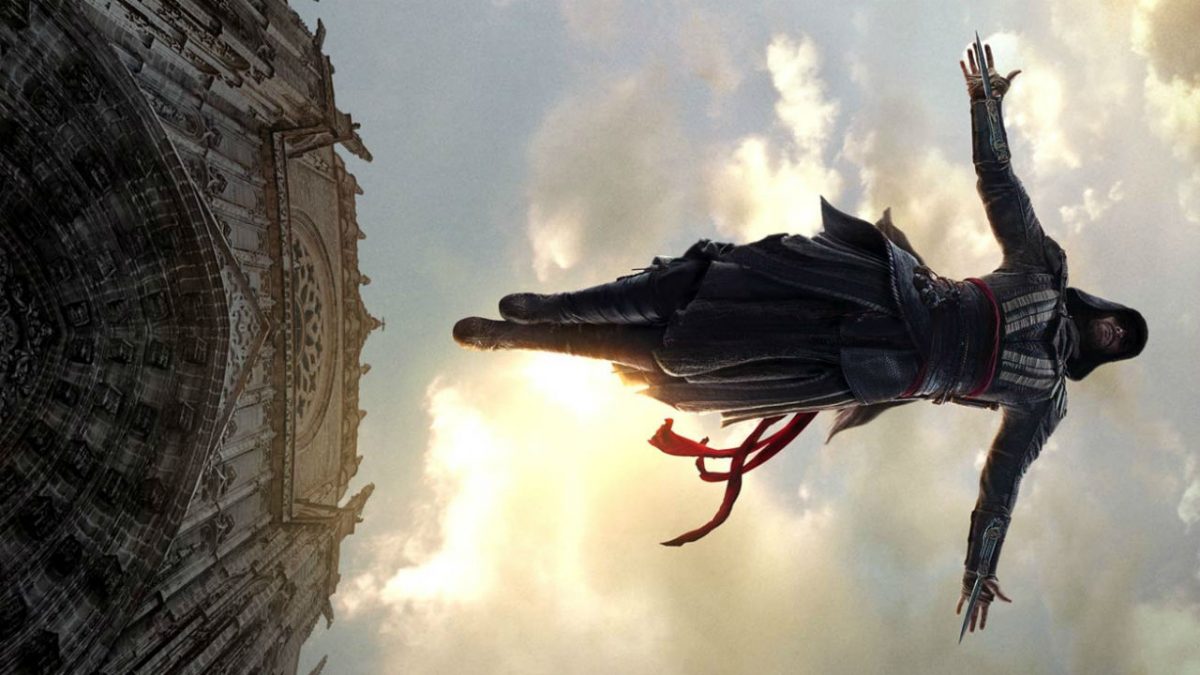 (1.5 / 5)
(1.5 / 5)
It’s clear that Justin Kurtzel, director of Assassin’s Creed, didn’t want to make just any old video-game movie. In fact, it seems clear that he didn’t really want to make a video-game adaptation at all.
Indeed, that’s just about the only thing that is clear in this adaptation of the long-running Ubisoft franchise, which manages to drain all the fun from the premise.
Apparently intended as a serious take on the idea of a millennia-long battle between an ancient order of assassins and the tyrannical Knights Templar, the film mistakes obscurity for artistic merit. Those unfamiliar with the series’ mythology may find it difficult to follow; those who are will likely find it difficult to care.
Burying his charisma so deep it’d take a piece of highly advanced technology to dig it up, Michael Fassbender plays Callum Lynch, a convicted murderer secretly saved from Death Row by Abstergo Industries, the modern-day face of the Templars, who intend to use his lineage from Aguila de Nerha, an Assassin who lived in 15th Century Spain (played by Fassbender in dark contacts), to locate an artifact called the Apple of Eden, which they intend to use to somehow abolish free will, via his reliving shared ancestral memories.
The film reunites Kurtzel and Fassbender, who worked together on Macbeth back in 2015, with Marion Cotillard, who therein played Lady Macbeth. Here she appears as Doctor Sophia Riffkin, a mysterious scientist who hopes to secure Callum’s cooperation as the key to unlocking the genetic code to human violence.
Kurtzel’s version of the Scottish play pared back Shakespeare’s verse in favor of misty moors and silent staring, albeit with sparsely beautiful period detail. Assassin’s Creed denies us even that: obscured by Adam Arkapaw’s dust-smeared cinematography, the Spanish Inquisition has never looked uglier. The sequences set at Abstergo are better for only being sterile and generic.
The film’s script tries to introduce a theme of parent-child conflict — Callum’s father murdered his mother; Sophia’s father, played by a bemused Jeremy Irons, is her superior — but this never crystallizes into anything compelling. All the characters are ciphers and not in the entertaining so-dark-the-con-of-man-type way that made the Da Vinci Code films just about watchable.
All the characters are given to cryptic pronouncements and the film’s script — written by Michael Lesslie, Adam Cooper, and Bill Collage, best known for historical epic Exodus: Gods and Kings — is so full of holes it’s more of a plot net.
How exactly does the Animus work, other than its Matrix-style harness allowing for cross-cutting between generic present-day action and boring historical action? In this regard, editor Christopher Tellefsen, Oscar nominated for his work on Moneyball, might be the only one involved who walks away from the film with some credit.
Is Callum actively reliving the events of the past or just experiencing them (and what does that mean in terms of “desychronization”, a hand-waved neurological condition whose main narrative impact seems to be placing Fassbender in a wheelchair for a scene.
Why is the fact that it’s the same actor, Matias Varela, playing the lead henchman in both periods never referenced?
Why give Aguila a companion/love interest, played by Ariane Labed, if you only intend to give her three lines of dialogue?
How does the Apple of Eden influence free will? In the original game, it had something to do with magic or aliens — things have got somewhat complicated over the course of nearly a dozen gazes — but it glowed gold, which was at least fun to look at.
That, crucially, is Assassin’s Creed‘s unforgivable flaw: it’s a video-game film that is no fun whatsoever. It’s essentially Prince of Persia without the banter or self-awareness. Kurtzel’s utterly self-serious approach to the material is reminiscent of Snyder’s in Batman V Superman (the first and last time I will refer to that film this year), but it’s not even in service of a film worth hating. Assassin’s Creed is just dour and unlikable.
The fact that the film’s credits include two petty change buyers — two! — might be the most interesting thing about it.
It’s a game of chess played on an Assassin’s Creed themed board, where the pieces include actors the caliber of Michael K. Williams, Brendan Gleeson, and Charlotte Rampling, but there are no characters of which to speak and the rules are tedious in the extreme.
To call it pedestrian is to undermine the excitement of darting across the road while not at a crossing. Exert your own autonomy — your free will, if you will — and give this one a miss.
